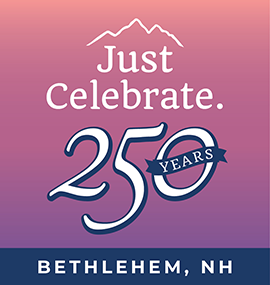On Sun, 10 Nov 2019 12:58:07 -0500, andreabryant@myfairpoint.net wrote:
Transfer Station Committee
Wednesday October 30, 2019
Attending: Julie Seely , Nancy Strand, Barry Zitser , Andrea Bryant
Absent: Dann, Chris Jensen, Chris McGrath, Jeanne Robillard, Katherine Darges
Prior to the meeting Julie, Nancy and Barry met at the 116 site to bring Nancy up to date and to evaluate the site.
6:30 meeting opened
We discussed hearing from the community garden that No composting is allowed on town land…something about processing waste…
The committee is very interested in having food waste eliminated from the trash stream so Maybe we should look at zoning ordinances. We may need to look into introducing something.
Kirsti P. for CLF they have a grant for Gary Liss to give a talk about how to get to zero waste. We expressed interest in exploring that.
Nancy talked about other towns in NH do composting..
Peterborough. Takes food waste but no meats.. Nancy will visit them.
Barry thought that even though there is a restrictions on composting on town land, maybe a variance could be gotten.
Vermont towns are doing a lot of composting. We need to find out what they are doing.
A plant in Connecticut that uses food processing plant (turning food waste into methane) and collects it in silo and turns it to methane. Multi million dollar plant. What happens to the food at the end? Smell is minimum… Has to be a cooperative effort with other towns. Not enough food waste just from Bethlehem. Barry volunteered to contact the Connecticut plant to see whether there might be interest in having a similar plant in the. North Country?
Discussed Barry’s Draft request for services for engineering study so we have a price to present that tells what it would cost to find out what condition the 116 site is in. Barry sent the proposal to members but hasn’t received feed back. the draft Request for Service would reserve the Ruth of the Town to accept in whole or in part any proposal, or to elect not to accept any proposal.
We reserve the right to accept whole or part of the proposal.
Have someone to do test pits at the 116 site to find out how deep the gravel is. May just want to make it up to the specs of a Town road. And save money and not have formal study.
This year’s warrant article for TS Capital reserve fund.
$137,000 in it now. Can be used for engineering study.
To decide if we want to suggest money for a warrant for 2020 we calculated a rough estimate of expenditures needed with a compactor truck = $120,000. We included money for Building, recycling containers, electricity, container to collect electronics, hazardous waste collection, buying a compactor truck, (I think I missed something)
Warrant this year… Andrea motioned. $20,000. 3 yes 1 no
Barry will pass this info on to Chris J. So that the Select Board knows.
Barry brought up the discussion for the select board to ask NCES if they will give the town the ability to use the current transfer station. Andrea expressed the concern again about not trusting Casella, since they previously caused Town to have emergency TS. Julie expressed concern about our committee asking the Town to make a deal with Casella. Nancy said that asking would be part of exploring all options. Asking the Select Board to write a letter is addressed in the Committee’s Interim Report, inquiring as to whether NCES/Casella would be receptive to giving the Trudeau Rad TransferStation to the Town upon the closing of the landfill. Barry explained that there would have to be protective language about potential residual pollution in any agreement.
Chris Jensen got a rough estimate for Curbside pickup of both zero sort and trash. It would was $270,000 plus disposal costs
Barry: Zero waste communities. Fort Collins Co. 50%,
Sweden boasts zero waste… diverts 99% from landfills. Recycling, 1/2 is incinerated to a produce electricity.
Barry wants to contact Pine Tree Power since they are going out of business… He wants to see if pine tree could be converted to an incinerator for trash.
Concerns..Would have to bring other community trash here from other towns…. it would not be as clean of a process as Sweden. Not in the scope of this committee. Our charge is only to find ways to manage the town trash. Bethlehem has an ordinance against incinerators. If something like that was feasible wouldn’t the company think of it?
It was decided not to follow through with this.
Price Edward Island is 70% in diverting trash from landfills.
the committee is Committed to achieving zero waste to do everything we can to reduce waste….commitment and vision.
Nancy brought some information to the meeting on various grants.
The Community Facilities Direct Loan & Grant Program – USDA
Provides affordable funding to develop essential community facilities in rural areas.
Eligible areas: rural areas with no more than 20,000 residents
Funds can be used to purchase, construct, and/or improve essential community facilities, purchase equipment and pay related project expenses.
Kinds of funding include: low interest direct loans, grants, or combination of these
Funding priorities
Based on population, median household income
Small communities with a populations of 5,500 or less
Low-income communities having a median household income below 80% of the state nonmetropolitan median household income
Grant assistance is limited to the following percentages of eligible project costs: Maximum of 75% to minimum of 15% dependent on our median income level.
To get started, it says to contact your local USDA office.
Technical Assistance and Training and Solid Waste Management Grant Programs – USDA
The information on these found online contained a 34 page application guide for fiscal year 2017 with notes that it’s been updated each year. There is a pdf ‘fact sheet’ attached which explains more about this program. Although it often references water resources/pollution concerns, it also says it can be used to “improve planning and management of solid waste sites in rural areas.” In addition, the pdf fact sheet says these grants can provide technical assistance to operators at landfills which are closed or closing to help with development or implementation of closure plans, future use plans, or safety and maintenance planning. Bethlehem does appear qualify as eligible.
Current closing date for applications: 12/31/19
New Hampshire the Beautiful Recycling Equipment Grant – a private non-profit corporation
Can be used for capital equipment, but applicant must have 50% of the purchase price available.
Grant requests must be for current and anticipated projects.
Ineligible expense includes buildings, land, construction, fencing, landscaping, studies, planning, administration, travel, vehicles, etc.
Equipment purchase must be used exclusively for recycling purposes and ownership must be maintained by applicant for 5 years.
Applicant must have returned the current year’s “Municipal Recycling Information Sheet” to the NH DES.
Their fiscal year is 11/1 thru 10/31.
This organization also provides funds on an annual basis for signage. These could include recycling bin signage as well as a site sign. We would need a Permit Number for a site sign application.
Keep America Beautiful / Coca-Cola Public Spaces Recycling Bin Grant Program
Awards recycling bins to schools, government agencies and other community organizations. Complete an online application, designating the style and number of bins they would like, explaining how and where they would use them. In addition to the free bins awarded thru the grant, all applicants are extended the opportunity to purchase additional recycling bins and related accessories at a special discounted price.
In addition to these potential funding sources, Nancy also collected some information from the NH DES on Household Hazardous Waste Grant Programs. After submitting a cover letter, income/expense sheet, hazardous waste contractor’s fixed costs/disposal costs, a public education component, copies of all major invoices, tallied survey results from participating households, and a completed DES Household Hazardous Waste Report Form, DES will award the funds to help pay for the disposal costs and costs associated with the educational campaign. In other words, we have to actually implement the program first before submitting for any funding help.
Julie suggested we might want to work with the North Country Counsel for more information on grants and application guidelines.
Per Barry’s request, Nancy agreed to send him a link to the USDA grant program and the 34 page application guidebook.
We could use it for Signage for the bins, and big site sign
Idea: Maybe North Country Counsel might have information about grants…
Barry would like to see us focus on diverting food waste from waste stream sent to a LF. Look into grants that would divert food. We all agree that is an important goal.
Pemi regional hazardous waste collection day…
Next meeting 6:30…Wednesday Dec 4.

